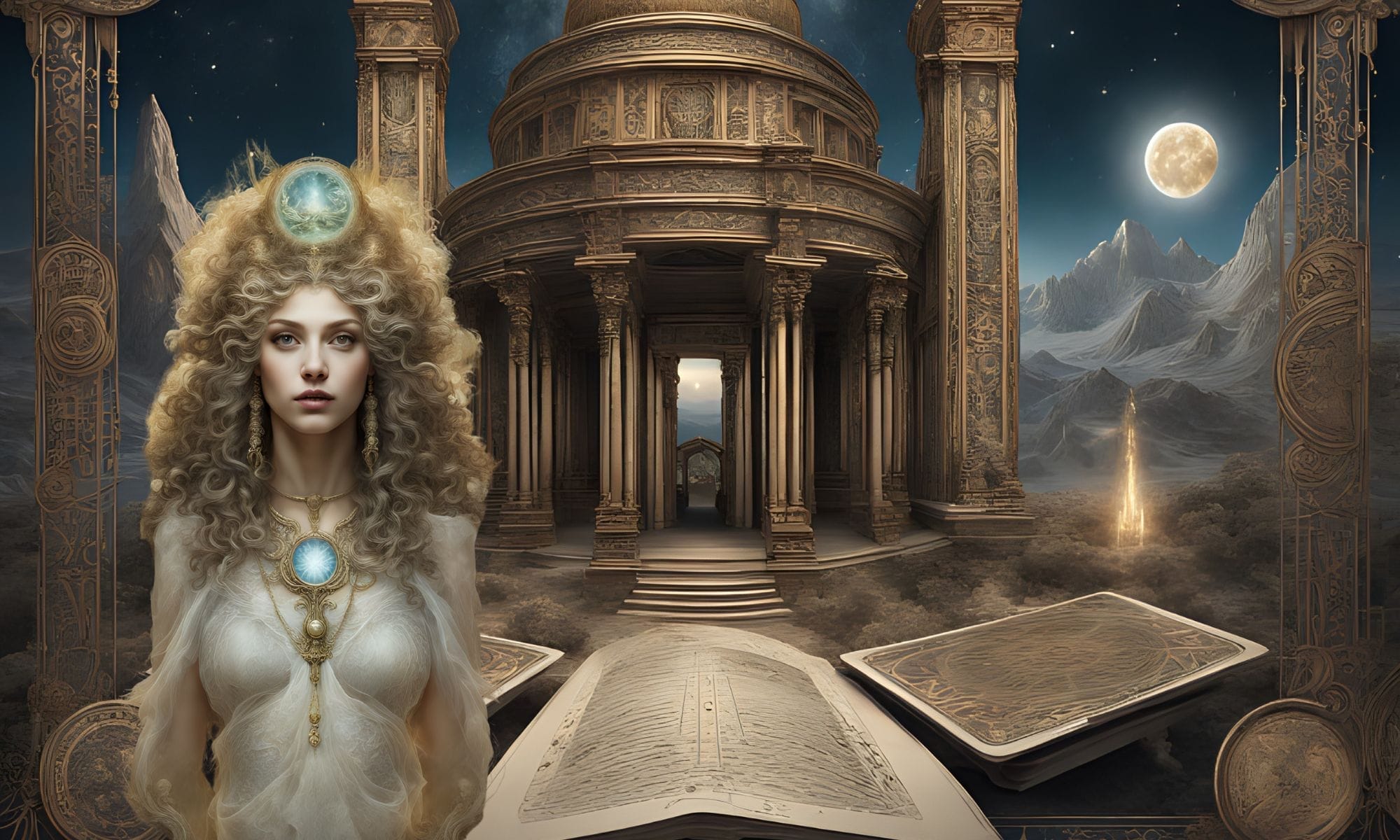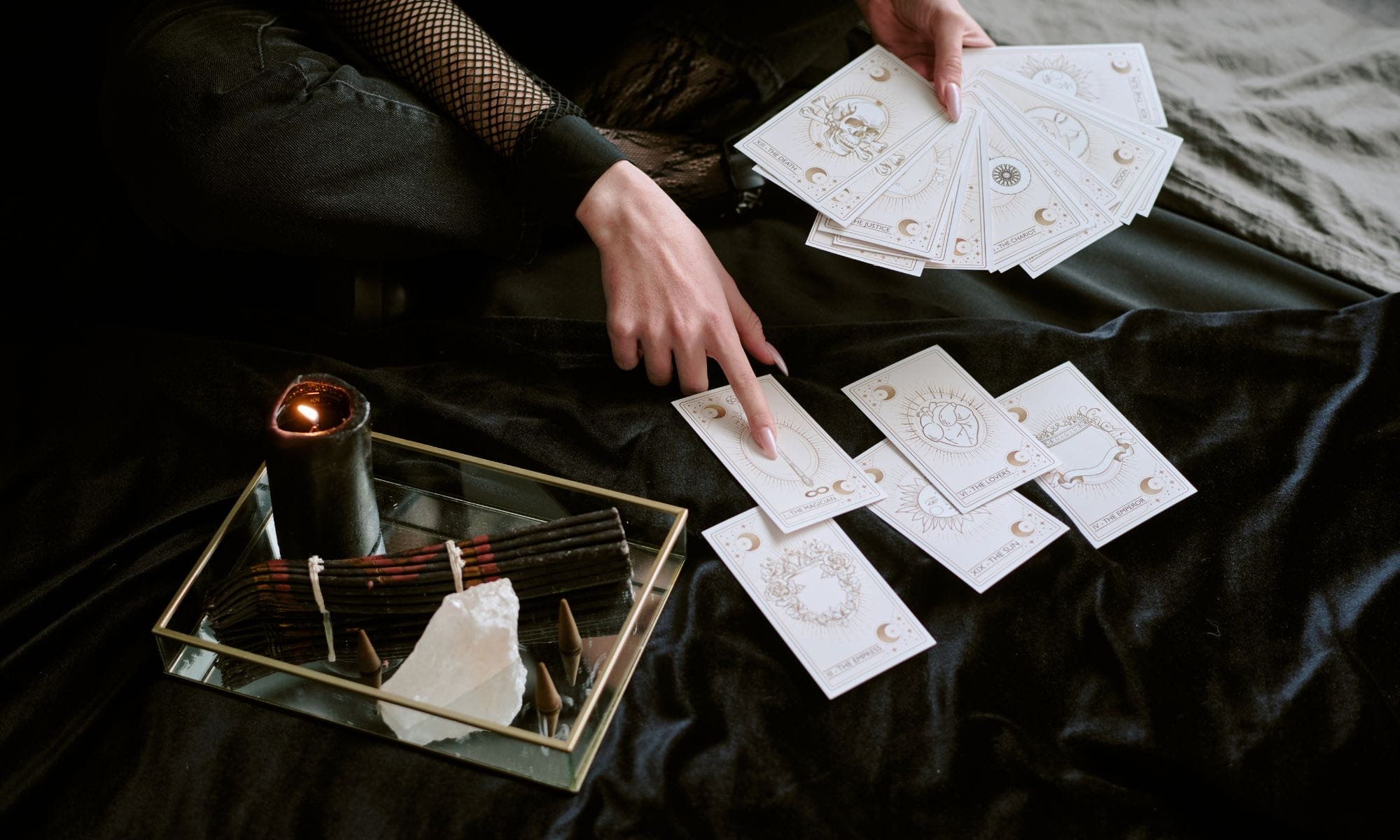When most people hear the word “Tarot,” they think of fortune-telling. But the Tarot is much more than predicting the future. Self-discovery through Tarot is a way to explore your thoughts, emotions, and behaviors. By working with the cards, you can uncover hidden patterns, learn how past experiences shape your present actions, and discover new ways to live with greater clarity.
Self-Discovery Through Tarot: How the Cards Help Us Understand Ourselves
How Tarot Encourages Self-Discovery
Tarot cards act like a mirror. Each card reflects something about your inner world: your feelings, your choices, and even your struggles. When you draw cards, you may see parts of yourself that you usually ignore.
A reading can reveal how you communicate in relationships or how you make decisions. This awareness helps you grow as an individual. With practice, Tarot can help you trust your instincts, manage emotions, and make healthier choices.
The Fool’s Journey: Life’s Stages in Tarot
The Tarot is made up of the Major Arcana and Minor Arcana, which together form a story called the Fool’s Journey. This journey is a metaphor for life itself. Each stage teaches a lesson—about courage, love, responsibility, or transformation. By studying these cards, you begin to understand your own life path.
Tarot, Mental Health, and Self-Discovery
Tarot is not a replacement for therapy, but it can support emotional well-being and provide insight into one’s life. By exploring the cards, you may identify triggers for stress, anxiety, or sadness. Journaling after readings can help you notice habits that either help or harm you. This reflection builds resilience and balance in daily life.
Tarot and Jungian Psychology
The psychologist Carl Jung believed we all share universal symbols, or archetypes, that shape our inner world. Tarot cards represent these archetypes: the Hero, the Shadow, the Mother, and the Teacher.
When you read Tarot, you’re exploring these universal patterns and how they show up in your own life. Jung called the process of becoming whole as individuation. Tarot supports this by showing you hidden aspects of yourself and guiding you toward integration.

What Are the Hidden Lessons of Tarot?
How can Tarot help with self-knowledge?
The Tarot reveals your behaviors, emotions, and patterns. Using the cards as a tool for personal growth, you can gain a greater awareness of yourself.
Does Tarot replace therapy?
No. Tarot complements therapy by offering insight, but it should not replace professional medical or psychological care.
What is the Fool’s Journey in Tarot?
The Fool’s Journey is a metaphor for life’s path. The Fool is Card zero, the beginning. Each of the Major Arcana represents a level of inner growth of the individual, from innocence to wisdom.
How does Jungian psychology connect with Tarot?
Jung’s archetypes mirror the symbols in Tarot. Both explore the collective unconscious and guide us toward deeper self-discovery.
Final Thoughts on Self-Discovery Through Tarot
Tarot is not just about predicting the future. It is a practice of looking within, uncovering patterns, and aligning with your authentic self. By combining Tarot with introspection, you can move closer to balance, clarity, and self-knowledge.
About the Authors
Liane and Christopher Buck are the creators of the Tao of Tarot, whose first book and card set is The Hidden Arcana Tarot, https://hiddenarcanatarot.com/. They are also the founders of OMTimes Magazine, Humanity Healing, and Cathedral of the Soul. Read more on their bio page, https://taotarot.com/liane-buck-and-christopher-buck/

Facebook | YouTube | X | Instagram | TikTok | Medium | BlueSky | Pinterest

